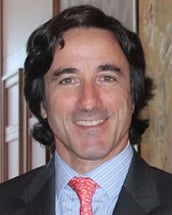In brief
Through General Resolution 5393/23 (“Resolution“), AFIP (tax authority) regulated the provisional payment of the PAIS tax that applies to the importation of goods included in paragraphs (b) (sumptuary goods) and (e) (the rest of the goods, as set forth in Decree 377/23) of Decree 99/19.
In focus
According to the Resolution, the provisional payment rate will be 28.5% for sumptuary goods (paragraph (b) of Decree 99/19) and 7.125% for the rest of the imported goods included in paragraph (e) of Decree 99/19 (as amended by Decree 377/23). These payments represent 95% of the applicable PAIS tax.
The provisional payment will be calculated on the FOB value in the import declaration and will be made at the time of filing of the import declaration with customs (just like all the duties and taxes applicable at the time of importation).
Afterward, at the time of access to the official foreign exchange market to pay for the importation, the importer will have to pay the remainder of the PAIS tax plus any potential difference attributable to the devaluation of the Argentine peso between the date of the provisional payment and the date of access to the foreign exchange market.
Click here to read the Spanish version.





